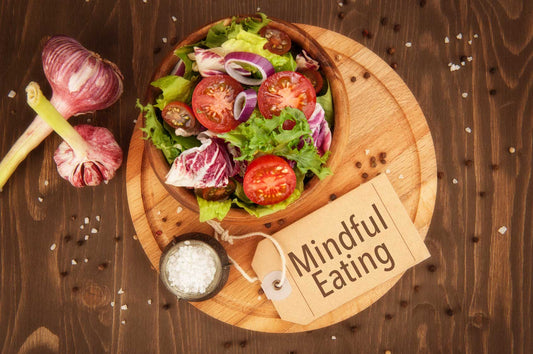Frequently Asked Questions
1. What are coping mechanisms in relationships?
2. Why are healthy coping mechanisms important for couples?
3. What are some unhealthy coping strategies to avoid?
4. How can couples develop healthy coping mechanisms together?
5. What should couples do if they struggle with coping strategies?
In today's fast-paced world, stress and anxiety are commonplace. For couples, navigating these challenges together can be an exercise in both frustration and growth. Developing healthy coping mechanisms is essential not only for individual well-being but also for nurturing the relationship as a whole. In this article, we will explore effective strategies that couples can employ to strengthen their connection while managing stress. Let’s dive into the world of healthy coping mechanisms!
Understanding Coping Mechanisms
Coping mechanisms are the strategies we use to manage stress and emotional pain. They can be positive or negative, shaping the way we deal with life's challenges. For couples, coping together can foster deeper understanding and intimacy, while unhealthy coping can lead to misunderstandings and resentment. It’s important for couples to recognise the types of coping mechanisms they utilise and to work together to foster healthier practices.
The Importance of Healthy Coping Mechanisms
Healthy coping mechanisms help couples to:
- Enhance communication
- Build trust
- Promote emotional intimacy
- Reduce conflict
- Improve overall relationship satisfaction
By adopting constructive coping strategies, couples can support one another through challenges, allowing both partners to thrive as individuals and as a unit.
Recognising Unhealthy Coping Strategies
Before we delve into healthy practices, it's essential to identify unhealthy coping mechanisms that couples should avoid. Often, these strategies can lead to greater stress and conflict in relationships:
- Avoidance: Ignoring problems can cause them to fester instead of being resolved.
- Substance Abuse: Relying on alcohol or drugs as an escape can harm both individual health and the relationship.
- Blame and Criticism: Pointing fingers can create a toxic environment and emotional distance.
- Distraction: Excessively distracting oneself with technology or other activities can prevent addressing underlying issues.
Building Healthy Coping Mechanisms Together
Now that we’ve identified what to avoid, let’s explore healthy coping mechanisms couples can develop.
1. Open Communication
One of the cornerstones of a strong relationship is communication. Discussing feelings, concerns, and solutions openly with one another creates a safe space for both partners. Couples can set aside regular times to check in with each other about how they are coping with stress.
2. Practise Mindfulness
Mindfulness enables couples to stay grounded in the present moment, reducing anxiety and stress. Couples can engage in mindfulness together through activities such as:
- Meditation
- Yoga
- Deep breathing exercises
These practices can help partners reconnect with themselves and each other amidst chaotic circumstances.
3. Encourage Physical Activity
Exercise is a significant stress reliever. Couples can benefit from engaging in physical activities together, which fosters teamwork and camaraderie. Whether it’s going for a walk, joining a gym, or trying dance classes, being active together enhances physical well-being while strengthening emotional bonds.
4. Problem-Solving as a Team
When faced with challenges, it’s crucial for couples to approach problems together. This can involve:
- Brainstorming possible solutions
- Evaluating the pros and cons of each option
- Agreeing on the best course of action
By treating challenges as a united front, couples can promote a sense of partnership and share the responsibilities of decision-making.
5. Establish Healthy Boundaries
Understanding individual needs is vital in any relationship. Couples should communicate their personal boundaries and respect them. This promotes mutual respect and individual autonomy, which is fundamental for any healthy partnership.
Fun Activities for Stress Relief
Incorporating fun into the relationship can serve as an excellent coping mechanism. Engaging in enjoyable activities can lighten the mood and strengthen bonds. Here are some ideas:
- Game Nights: Challenge each other with board games or video games.
- Cooking Together: Experiment with new recipes or enjoy each other's favourite dishes.
- Outdoor Adventures: Hiking, biking, or even camping can provide a refreshing break from routine.
Fostering a sense of play in a relationship helps both partners feel connected and appreciated.
Seeking Professional Help
If a couple finds themselves struggling to implement effective coping strategies, consulting a professional can be beneficial. Couples counselling can provide tools and techniques tailored to their situation. A trained therapist can work with couples to navigate their unique challenges while revisiting each partner’s coping styles, ultimately leading to healthier behaviours and resolutions.
Resources for Couples
There are numerous resources available for couples seeking to improve their coping mechanisms:
- Books: Consider reading self-help books focusing on communication, mindfulness, or emotional intelligence.
- Online Workshops: Some platforms offer virtual workshops addressing relationship dynamics and stress management.
- Apps: There are various apps focused on mindfulness, meditation, and relationship strengthening.
By utilising these resources, couples can further enhance their coping strategies and foster a deeper connection.
Embracing the Journey Together
Developing healthy coping mechanisms is an ongoing journey for couples. It requires patience, commitment, and mutual effort. As couples face life’s ups and downs, embracing the journey together can lead to profound growth, understanding, and connection. With open communication, alignment on shared goals, and an openness to adapting, couples can thrive together, building a resilient and lasting partnership.
As you explore these strategies, remember that coping in a relationship isn’t just about overcoming stress—it's about strengthening the bond between you and your partner, propelling each other towards mutual happiness and fulfilment.
Further Information & Help
We hope you have found this blog useful. However, if you would like some help and guidance you can contact us here or book an initial consultation here.





